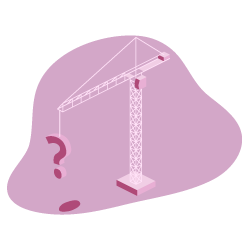You should optimize your URLs for SEO. While it can be just seen as a small information about a web page’s location, it contains much more information. Actually, URLs provide informations to search engines about the content of a page, its context and its target. URLs are composed of different factors that are not all as meaningful. But here are the 10 most important ones you should take care of and that can impact your rankings and visibility.
How to optimize your URLs?
1# URLs must be readable by everyone
Both readers and search engines must be capable of reading your URL. Search engines as readers, read your URLs words to know what the page is going to be about. That’s why you should not use dynamically generated URLs and customize them in order to provide full comprehension of your content and target.
Example: if you are an ecommerce shop selling black leather jacket you should write the dedicated page URL this way:
http://yourdomain.com/black-leather-jacket and not this way:
http://yourdomain.com/index.php?=5754225=t44=?p=987
2# Organize your content
The way an URL is written bring information on its importance. In fact, search engines regard web pages in root folder as a top content that should be prioritized over other ones. That’s why you need to categorize your URLs in order to clearly determine and show to search engines which URL should get a little boost in the SERPs.
Example: http://yourdomain.com/specific-keyword will get more authority than http://yourdomain.com/category/specific-keyword and more than http://yourdomain.com/category/subcategory/specific-keyword
3# Do not use capital
Capital letter can confuse search engines and readers as it can make it more difficult to understand.
4# Prefer hyphens to underscores
If you want to optimize your URL then the way you separate words does matter. Actually, Google robots are set up to read hyphens and not underscores. If you want to have a chance to get ranked, then you have to apply this rule.
Example: http://yourdomain.com/red-couch
and not http://yourdomain.com/red_couch
5# Add your mobile URLs to a sitemap
This is a good way to inform search engines which web pages are mobile friendly and which one are not. Those first ones seems to rank higher in the SERPs since the Google mobile update. Even if some experts say that responsive URLs do not not need to be included to a sitemap, it is safer to do so.
6# Include your target keyword
Try your best to include your primary keyword in your URLs. Even if in most cases it can’t be done on your homepage, focus on integrating your target keyword related to your product or category pages.
7# Block unsafe URLs with robots.txt
Bad URLs can get you penalized by search engines if they index duplicate URLs for example or other unoptimized URLs. For instance, you can have features creating filters on your website generating dynamic and duplicated URLs. You can thus block those extra URLs using robots.txt.
8# Canonicalize your URLs
Some pages can sometimes create duplicate content when they are dynamic pages with filters for instance. The way to prevent this action, is to use canonical URLs. This tag can be used if you want a specific URL to become the preferred one even if other ones direct to the same content. In this case, you need to add a rel=”canonical” link element in the head of any pages with the same content.
Example: <link rel=”canonical” href=”http://yourdomain.com/red-couch” />
Also, you should set up your URL preferred domain. Actually, search engines perceives www, https, non www, etc as different websites and then will categorize this content as duplicate.
Another way to avoid duplicates is to set up your dynamic parameters and tell search engines when they should ignore those parameters. It can be the case with pagination or session ID.
9# Don’t forget 301 redirect for broken URLs
If you need to change a page URL for any reason, do not forget to inform search engines its new location. Actually, there are chances that search engines have indexed that page. You don’t want to lose link juice from a well ranked page so that’s why you need to implement 301 redirect on the old URL place to notify Google bots your new URL destination.
10# Add a favicon
Even if they do not have a direct SEO impact on your rankings, favicons have a lot of advantages. This little icon next to your URL in browser helps better recognize your website brand. It is also easier to your website in bookmarks. It thus will help to develop your brand visibility

